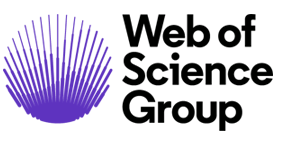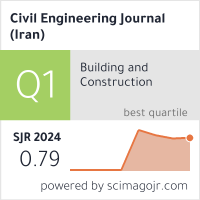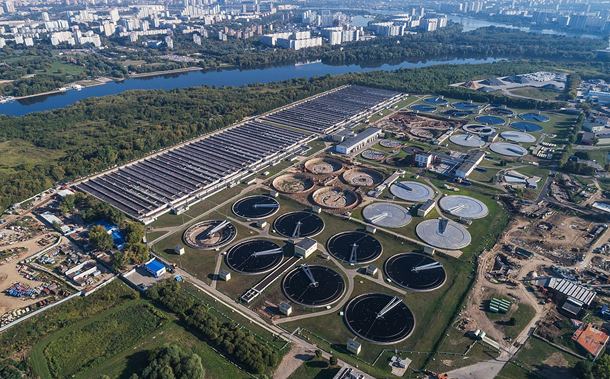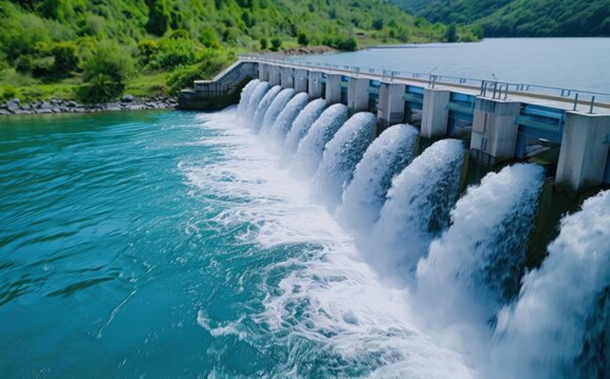Effect of Construction Manager's Political Skills on Relationship between Quality Management Practices and Inter-Organizational Project Success
Downloads
Doi:10.28991/CEJ-2024-010-01-019
Full Text:PDF
Downloads
[2] Braun, T., & Sydow, J. (2019). Selecting Organizational Partners for Interorganizational Projects: The Dual but Limited Role of Digital Capabilities in the Construction Industry. Project Management Journal, 50(4), 398–408. doi:10.1177/8756972819857477.
[3] Qian, Y., Wang, M., Zou, Y., Jin, R., Yuan, R., & Wang, Q. (2019). Understanding the double-level influence of Guanxi on construction innovation in China: The mediating role of interpersonal knowledge sharing and the cross-level moderating role of inter-organizational relationships. Sustainability (Switzerland), 11(6), 1657. doi:10.3390/su11061657.
[4] Lu, W., Zhang, D., & Rowlinson, S. (2013). How important is inter-organizational collaboration to the success of construction project BIM implementation. Proceedings of CIB World Building Congress 2013, 12.
[5] Sedita, S. R., & Apa, R. (2015). The impact of inter-organizational relationships on contractors' success in winning public procurement projects: The case of the construction industry in the Veneto region. International Journal of Project Management, 33(7), 1548–1562. doi:10.1016/j.ijproman.2015.05.001.
[6] Wu, G., Zhao, X., & Zuo, J. (2017). Effects of inter-organizational conflicts on construction project added value in China. International Journal of Conflict Management, 28(5), 695–723. doi:10.1108/IJCMA-03-2017-0025.
[7] Nezami, M. R., de Bruijne, M. L. C., Hertogh, M. J. C. M., & Bakker, H. L. M. (2022). Collaboration and Data Sharing in Inter-Organizational Infrastructure Construction Projects. Sustainability (Switzerland), 14(24), 16835. doi:10.3390/su142416835.
[8] Mohd Zureehan, M. Z. F., & Lee, K. L. (2022). The Effect of Top Management Support and Collaborative Team on Project Performance in Malaysian Construction Industry: Moderating Effect of Trust. International Journal of Industrial Management, 13(1), 422–437. doi:10.15282/ijim.13.1.2022.6921.
[9] Saqib, M., Farooqui, R. U., & Lodi, S. H. (2008). Assessment of Critical Success Factors for Construction Projects in Pakistan. First International Conference on Construction in Developing Countries (ICCIDC–I) "Advancing and Integrating Construction Education, Research & Practice,” 392–404.
[10] Ejaz, N., Hussain, J., Shabbir, F., Shamim, M. A., Naeem, U. A., Tahir, M. F., Ahmad, N., & Farooq, Q. U. (2013). Assessment of most critical success factors for mega construction projects in Pakistan. Life Science Journal, 10(SPL.ISSUE10), 255–261.
[11] Sheikh, A. H. A., Ikram, M., Ahmad, R. M., Qadeer, H., & Nawaz, M. (2019). Evaluation of key factors influencing process quality during construction projects in Pakistan. Grey Systems, 9(3), 321–335. doi:10.1108/GS-01-2019-0002.
[12] Sohu, S., Jhatial, A. A., Ullah, K., Lakhiar, M. T., & Shahzaib, J. (2018). Determining the Critical Success Factors for Highway Construction Projects in Pakistan. Engineering, Technology & Applied Science Research, 8(2), 2685–2688. doi:10.48084/etasr.1866.
[13] Ahmed, R., Hussain, A., & Philbin, S. P. (2022). Moderating Effect of Senior Management Support on the Relationship between Schedule Delay Factors and Project Performance. EMJ-Engineering Management Journal, 34(3), 374–393. doi:10.1080/10429247.2021.1940033.
[14] Choudhry, R. M., & Zahoor, H. (2016). Strengths and Weaknesses of Safety Practices to Improve Safety Performance in Construction Projects in Pakistan. Journal of Professional Issues in Engineering Education and Practice, 142(4), 4016011. doi:10.1061/(ASCE)EI.1943-5541.0000292.
[15] Xie, X., Wang, L., & Zeng, S. (2018). Inter-organizational knowledge acquisition and firms' radical innovation: A moderated mediation analysis. Journal of Business Research, 90, 295–306. doi:10.1016/j.jbusres.2018.04.038.
[16] Wang, D., Fu, H., & Fang, S. (2020). The efficacy of trust for the governance of uncertainty and opportunism in megaprojects: The moderating role of contractual control. Engineering, Construction and Architectural Management, 27(1), 150–167. doi:10.1108/ECAM-09-2018-0409.
[17] Wang, D., Fu, H., & Fang, S. (2019). The Relationship between Relational Quality and Megaproject Success: The Moderating Role of Incentives. EMJ - Engineering Management Journal, 31(4), 257–269. doi:10.1080/10429247.2019.1624099.
[18] Wu, L., Weng, Y., Shen, W., & Tang, W. (2022). Effects of Boundary-Spanning Roles and Interface Management Practices on Inter-organizational Communication in Construction Projects: Perspective of the Owner. International Symposium on Advancement of Construction Management and Real Estate, 361–371. doi:10.1007/978-981-19-5256-2_29.
[19] Saukko, L., Aaltonen, K., & Haapasalo, H. (2020). Inter-organizational collaboration challenges and preconditions in industrial engineering projects. International Journal of Managing Projects in Business, 13(5), 999–1023. doi:10.1108/IJMPB-10-2019-0250.
[20] Badi, S., & Diamantidou, D. (2017). A social network perspective of building information modelling in Greek construction projects. Architectural Engineering and Design Management, 13(6), 406–422. doi:10.1080/17452007.2017.1307167.
[21] Lu, P., Cai, X., Wei, Z., Song, Y., & Wu, J. (2019). Quality management practices and inter-organizational project performance: Moderating effect of governance mechanisms. International Journal of Project Management, 37(6), 855–869. doi:10.1016/j.ijproman.2019.05.005.
[22] Ejaz, N., Ali, I., & Tahir, M. (2013). Assessment of Delays and Cost Overruns during Construction Projects in Pakistan. Civil Engineering Department University of Engineering & Technology, Taxila, Pakistan, 1–9.
[23] Haseeb, M., Bibi, X. L. A., & Rabbani, W. (2011). Causes and effects of delays in large construction projects of Pakistan. Kuwait Chapter of Arabian Journal of Business and Management Review, 1(4), 1-25.
[24] Laan, A., Voordijk, H., Noorderhaven, N., & Dewulf, G. (2012). Levels of Interorganizational Trust in Construction Projects: Empirical Evidence. Journal of Construction Engineering and Management, 138(7), 821–831. doi:10.1061/(asce)co.1943-7862.0000495.
[25] Loosemore, M., & Lim, B. (2015). Inter-organizational unfairness in the construction industry. Construction Management and Economics, 33(4), 310–326. doi:10.1080/01446193.2015.1057193.
[26] Gambatese, J. A., & Hallowell, M. (2011). Enabling and measuring innovation in the construction industry. Construction Management and Economics, 29(6), 553–567. doi:10.1080/01446193.2011.570357.
[27] Gluch, P., Gustafsson, M., & Thuvander, L. (2009). An absorptive capacity model for green innovation and performance in the construction industry. Construction Management and Economics, 27(5), 451–464. doi:10.1080/01446190902896645.
[28] Blaskovics, B., Maró, Z. M., Klimkó, G., Papp-Horváth, V., & Csiszárik-Kocsir, í. (2023). Differences between Public-Sector and Private-Sector Project Management Practices in Hungary from a Competency Point of View. Sustainability (Switzerland), 15(14), 11236. doi:10.3390/su151411236.
[29] Malek, M. S. S., & Bhatt, V. (2023). Investigating the effect of risk reduction strategies on the construction of mega infrastructure project (MIP) success: a SEM-ANN approach. Engineering, Construction and Architectural Management. doi:10.1108/ECAM-12-2022-1166.
[30] Ghorbani, A. (2023). A Review of Successful Construction Project Managers' Competencies and Leadership Profile. Journal of Rehabilitation in Civil Engineering, 11(1), 76–95. doi:10.22075/JRCE.2022.24638.1560.
[31] Silva, C. S., Pereira, C., & Magano, J. (2023). The value of project management to competitiveness: key factors from a holistic and practical perspective. International Journal of Managing Projects in Business, 16(1), 67–91. doi:10.1108/IJMPB-02-2020-0042.
[32] Jugdev, K., Müller, R., & Hutchinson, M. (2025). Future trends in project management: A macro-environmental analysis. Project Management Circa, Circa, 229–240.
- Authors retain all copyrights. It is noticeable that authors will not be forced to sign any copyright transfer agreements.
- This work (including HTML and PDF Files) is licensed under a Creative Commons Attribution 4.0 International License.![]()















